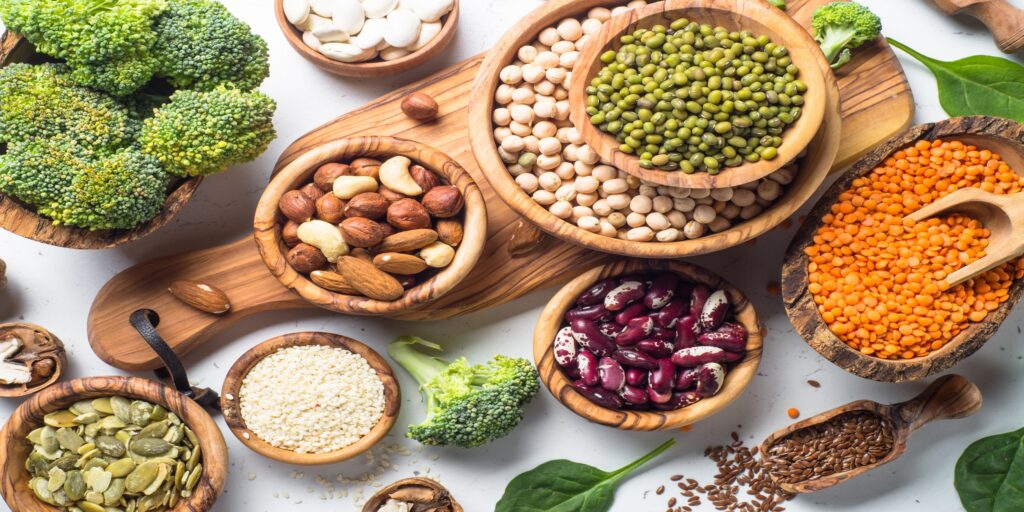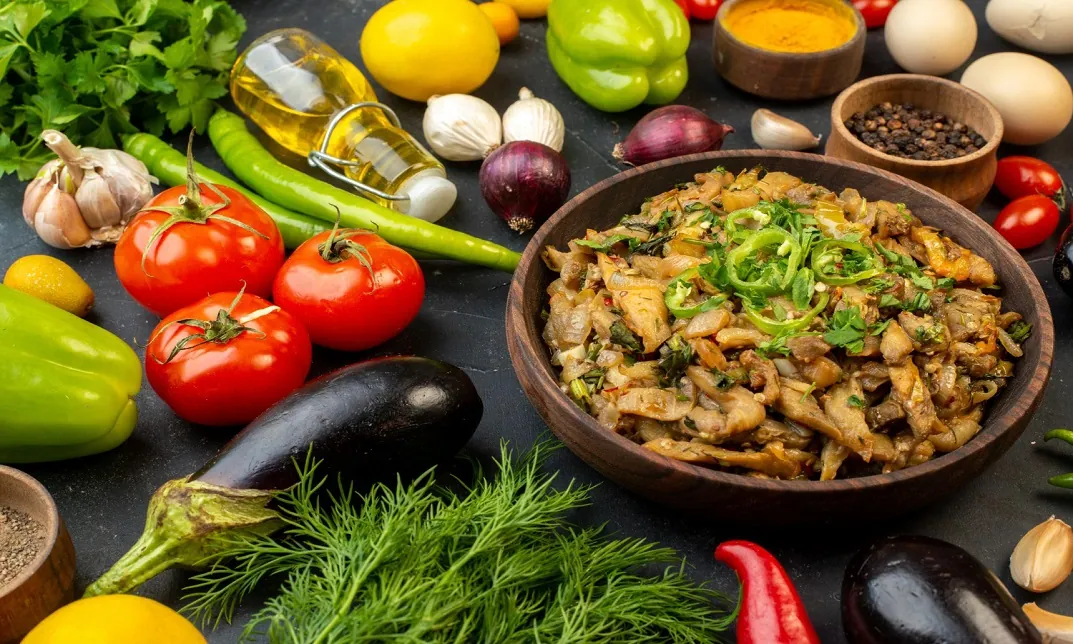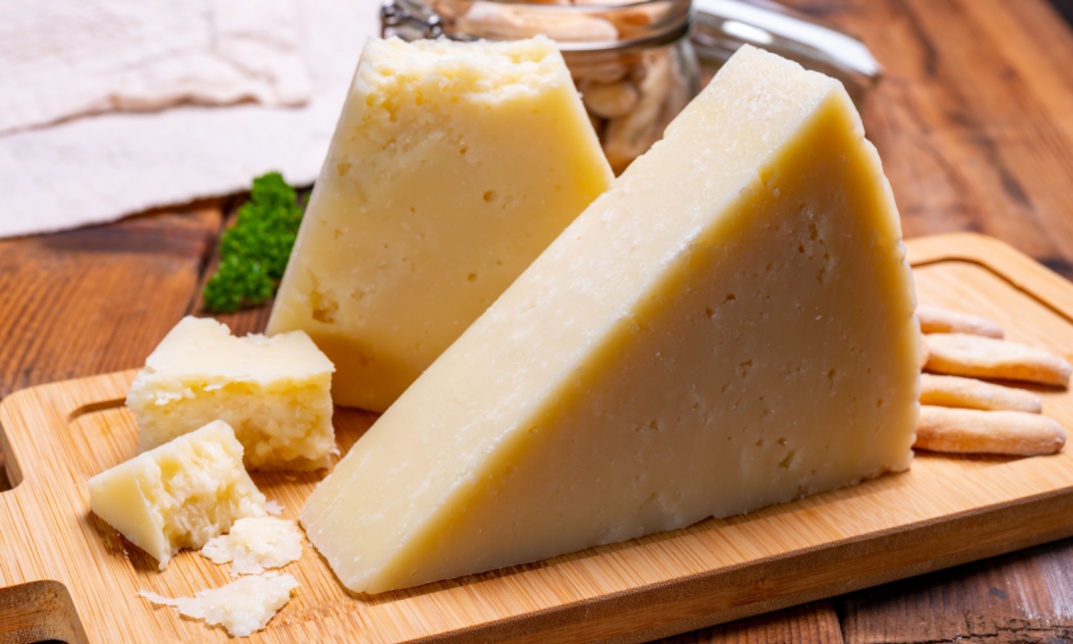No products in the basket.
Thinking about going vegetarian? You’re not alone! More and more people are making the switch to a plant-based lifestyle. But what foods do vegetarians eat? And how can you make sure you’re getting all the nutrients you need? Now, this is where our blog comes into action as it explores the world of vegetarian foods.
Types of Vegetarian Diets
First things first, not all vegetarians eat the same things. There are different types of vegetarian diets, each with its unique twist.
Lacto-Vegetarian
Lacto vegetarians avoid meat, poultry, seafood, and eggs but incorporate dairy products into their diet. This can be a good option for those seeking a balance between plant-based eating and including calcium-rich dairy.
Ovo-Vegetarian
Ovo vegetarians skip meat, poultry, seafood, and dairy but include eggs in their meals. Moreover, eggs offer a good source of protein and necessary nutrients for those excluding most animal products.
Lacto-Ovo Vegetarian
This is the most widely recognised form of vegetarianism. Lacto-ovo vegetarians exclude meat, poultry, and seafood from their diet but include dairy products (like milk, cheese, and yoghurt) and eggs.
Vegan
Vegans take vegetarianism a step further by excluding all animal products from their diet. This means no meat, poultry, fish, eggs, or dairy. Furthermore, vegans often avoid products that involve animal exploitation, such as honey or some processed foods that may contain animal-derived ingredients.
Flexitarian
This dietary approach centres on plant-based meals with the occasional inclusion of meat, poultry, fish, or eggs. Flexitarians prioritise whole, unprocessed foods and aim to reduce their overall intake of animal products.
Pescatarians
Pescatarians follow a vegetarian diet with the addition of fish and other seafood like shrimp, mussels, salmon, crabs, and lobster. Some pescatarians may also include dairy and eggs in their diet, while others may not. This diet can be a good option for those who enjoy seafood and want to increase their intake of omega-3 fatty acids.

What is a Vegetarian Diet?
In a nutshell, a vegetarian food is any food item that does not contain meat, poultry, or seafood. This includes a wide range of delicious and nutritious options! Here’s a breakdown of what vegetarians eat:
- Fruits and Vegetables: These vibrant staples form the foundation of a vegetarian diet. They provide vital vitamins, minerals, and fibre for a healthy body. From juicy berries to leafy greens, the variety is endless!
- Whole Grains: Brown rice, quinoa, oats, whole-wheat bread, and other whole grains are powerhouses of complex carbohydrates, keeping you energised throughout the day. Moreover, they’re a good source of fibre, promoting gut health.
- Legumes: Beans, lentils, chickpeas, and peas are excellent vegetarian choices. They’re packed with protein and fibre, they can be enjoyed in soups, stews, salads, dips, and even burgers!
- Nuts and Seeds: These tiny nutritional powerhouses provide healthy fats, protein, and essential vitamins and minerals. Also, they’re a great source of on-the-go snacks or can be added to salads and stir-fries for extra flavour and texture.
- Eggs (for lacto-ovo vegetarians): A source of complete protein and essential nutrients, eggs are a versatile ingredient for vegetarians who include them in their diet. They can be enjoyed scrambled, fried, boiled, or baked in various dishes.
- Dairy Products (for lacto-vegetarians): Milk, cheese, and yoghurt (for those who consume dairy) offer calcium, vitamin B12, and other important nutrients. Moreover, they can be enjoyed independently or incorporated into vegetarian recipes.
Health Benefits of a Vegetarian Diet
Adopting a vegetarian diet can offer numerous health benefits, making it an attractive choice for those looking to improve their overall well-being. Here are some of the key health advantages associated with a vegetarian lifestyle:
Lower Risk of Chronic Diseases
Vegetarians often have a reduced risk of heart disease, type 2 diabetes, and certain cancers due to a high intake of nutrient-rich fruits, vegetables, whole grains, nuts, and seeds.
Improved Heart Health
Plant-based diets are low in saturated fats and cholesterol, which helps lower cholesterol levels and maintain healthy blood pressure, reducing the risk of heart disease.
Weight Management
Vegetarian diets, which are lower in calories and higher in fibre, help maintain a healthy weight and reduce the risk of obesity-related conditions.
Better Digestive Health
High-fibre diets support good digestion, promote regular bowel movements, and maintain a healthy gut microbiome, preventing constipation and enhancing overall digestive health.
Lower Blood Pressure
Rich in potassium, magnesium, and antioxidants, vegetarian diets help lower blood pressure and reduce the risk of hypertension and related health issues.
Increased Longevity
A well-balanced vegetarian diet is linked to increased life expectancy, thanks to a lower risk of chronic diseases and healthier lifestyle choices.
Reduced Risk of Certain Cancers
Vegetarians have a lower risk of digestive tract cancers due to the high intake of antioxidant-rich fruits and vegetables.
Better Blood Sugar Control
High fibre in plant-based foods helps regulate blood sugar levels, improving insulin sensitivity and reducing the risk of type 2 diabetes.
Improved Kidney Health
Plant-based proteins are easier on the kidneys, reducing the risk of kidney disease and promoting better kidney function.
Better Skin Health
A diet rich in fruits, vegetables, and healthy fats improves skin health, combating ageing and keeping the skin vibrant.
Vegetarian Meal Planning
Through vegetarian meal planning, you can gain a clear idea of what foods do vegetarians eat. Here is a breakdown of the meal planning that vegetarians follow:
Sample Meal Plans
- Start your day with a smoothie or oatmeal, have a hearty salad or grain bowl for lunch, and enjoy a veggie stir-fry or pasta for dinner. Furthermore, snacks can include fruits, nuts, and hummus with veggies.
Tips for Balanced Nutrition
- Make sure each meal includes a source of protein, healthy fats, and a variety of fruits and vegetables. As a result, this helps ensure you’re meeting all your nutritional needs.
Budget-Friendly Vegetarian Meals
- Eating vegetarian can be cost-effective. Beans, lentils, rice, and seasonal produce are inexpensive and nutritious. Moreover, planning your meals around these staples can save you money.
What Foods Do Vegetarians Eat: Conclusion
A vegetarian diet offers a world of delicious possibilities. With a little planning and exploration, you can create a vibrant and satisfying way of eating packed with health benefits. From the diverse range of vegetarian diets to the multitude of nutritious and flavorful foods, there’s something for everyone. So, embrace the adventure, explore new cuisines, and take off on a delicious journey towards a healthier you!
Furthermore, you can visit the Course Cave and enrol in our Vegetarian Cookery course to gain valuable insights into it. Additionally, our course offers you CPD certification, and we are also here to provide 24/7 help for any query or issue you may face.




